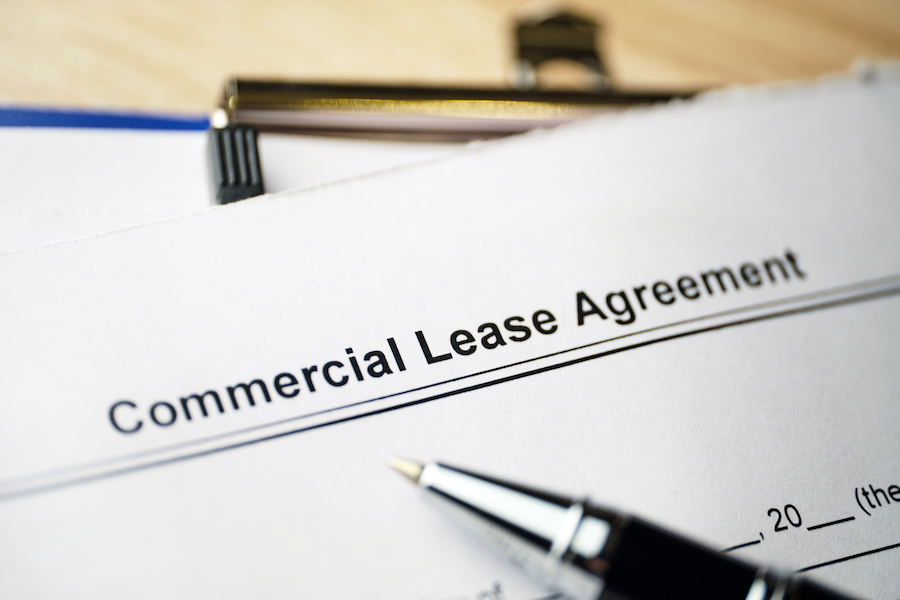If you are a corporate tenant who needs more space or is thinking about future growth, expansion clauses are a crucial factor to be aware of when negotiating your lease.
Expansion rights are critical for tenants who are happy with their current property and landlord but know that their size is quickly growing. Rather than seeking out new commercial spaces, you can work with your current landlord to identify your right to expand within your existing building.
As tenant reps, we have spent over three decades negotiating on behalf of corporate tenants. As a result, we know your intrinsic rights and what you can do to act on them. We have seen these expansion terms in action and what happens if they aren’t there.
So based on our market intelligence, we have compiled a list of the three most important expansion clauses, including:
Each gives tenants a potential claim on adjacent spaces but the circumstances in which they occur vary.
So read on to learn about these terms, what’s great about them, and what could be potentially complicated.

What are Expansion Clauses?
Expansion clauses are terms negotiated within your lease that outline your ability to expand within the property should space become available.
While it is common for landlords to offer adjacent or expanded spaces to existing tenants, it is not legally obligated unless the expansion clauses are negotiated.
These are the three most common types:
1. Right of First Offer (ROFO)
The right of first offer is exactly what it sounds like. As a tenant, you essentially get first dibs on spaces that open within your building.
Before your landlord can market or advertise open vacancies, they must gauge your interest by offering you the option to expand.
If you decline or cannot come to an agreement during negotiations, your landlord is then free to market the property to other viable tenants.
How is the Space Determined?
Within your original lease, the area on which you have the first claim, will be outlined. It applies to specific spaces usually adjacent to the area you occupy.
Depending on the size and floor-plan of the building, the circumstances will vary, but adjacent spaces usually mean:
- Suites on the same floor
- Entire floors above leased space
- Entire floors below leased space

How Does the ROFO Work in Action?
When you have a ROFO outlined in your lease, you will be allotted a time period in which you can accept or deny the proposed expansion.
If you accept, the landlord will typically require concessions on your behalf as a show of good faith. Usually, this includes:
- Increased payment for security deposit
- First Month’s rent of new space
Why Is the Right of First Offer Great?
If you have a Right of First Offer negotiated in your lease, then you are the first to know about open space. Accordingly, you are the first to place bids on available suites or floors that open up.
This can be key to the growth of your organization, especially if you frequently need more space.
You also get a leg up on competition within your geographic area because you can block competitors or rivals from occupying your shared space.
Let’s sum it up. As the original tenant to ROFO lets you...
- Be the first to know about open space
- Place first bids on open space
- Get an edge on the competition for space
- Block potential competitors from your geographic sphere
What’s Complicated about ROFO?
- The Right of First Offer does not guarantee that you will assume any newly opened space as the original tenant. Rather, it just gives you the ability to place the first claim. This is perhaps the most frequent point of misunderstanding with the ROFO
- Your landlord is not obligated to close on a deal with you; they are required to offer you the property first.
- If you cannot come to terms during negotiations, the landlord can market the space to other tenants.
2. Right of First Refusal (ROFR)
In this case, the tenant still receives preferential treatment when there is a new open space. However, the landlord does have the power to market the property to other tenants before asking if you want to expand.

What Does This Mean?
Your landlord can advertise the property to other interested tenants. They may even engage in extensive negotiations with them to solidify the terms the new tenant would receive.
Typically, the landlord will receive a Letter of Intent from the interested third party.
However, before they let them move in with the agreed negotiated terms, they must provide the same offer and terms to the original tenant.
The original tenant then has two options:
- Expand under the terms they did not negotiate
- Decline and forfeit their right to expand
Why is the Right of First Refusal Great?
As the original tenant, you still have incredible leverage with the Right of First Refusal. This is another term that ensures preferential treatment over competitors.
If your landlord does market newly opened space, you do not need to worry about losing your potential to occupy it. You can swoop in at the last moment once negotiations are over and claim the terms for yourself.
Since other tenants already negotiated terms, you will likely be able to move in with favorable terms and rates. Often, the ROFR allows original tenants to claim the space below market value.
Someone else already did the dirty work of arbitration and likely lowered the landlord’s offers.

Let’s sum it up. As the original tenant, the ROFR lets you…
- Remain in the know about space that opens up
- Place bids on space without the fear of competition
- Free yourself from the headache of negotiation
- Settle into a new space at rates lower than the landlord alone would offer
What’s Complicated about the Right of First Refusal?
- The ROFR can place you in a tough position. You can either block the new tenant by adopting their terms or forfeit your right to expand.
- You may not receive the terms you want because you are not at liberty to introduce clauses; just accept or deny the existing ones.
- You are sweeping the rug out from other potential tenants who will likely not be happy that all their hard work in negotiation was lost.
- Landlords usually don’t like the ROFR and find it hard to market space with an existing ROFR- Tenants know they can have their terms stolen and are generally reluctant to place bids on these properties.
3. Must Take Clause
As a tenant, you can reserve space you don’t need now for future use with the Must Take clause.

During negotiations, you specify the space you need now in addition to an outlined portion you will eventually occupy. You will pay rent for your used portion. During this time, you usually do not pay for the extra space. It is known as a “ramp-up” period.
When the ramp-up period of free rent is over, you will begin making monthly payments of the entirety of the space whether you moved in yet or not.
What’s Great About the Must Take Clause?
Must Take Clauses are perfect for quickly growing companies that have a clear projection of their spatial requirements in the near future.
Following the initial negotiations, the Must Take Clause is generally straightforward to put in action. Your period of free rent will be outlined within your original rent table in addition to the date you begin paying for the extra space.
Everything will be included within your lease.
Let’s sum it up. As a tenant, the Must Take Clause lets you...
- Reserve space within your property that you don’t need right now
- Own the extra space during a period of free rent
- Expand your company within the same property
- Negotiate the terms for the entirety of your space instead of accepting another tenant’s clauses
What’s Complicated about the Must Take Clause?
- Even if you don’t need the extra space, you must pay for it after a certain defined period.
- If your company does not meet growth projections or is disrupted, you will be in the hole for the payments.

How a Tenant Rep Can Help With Expansion Clauses
Depending on your landlord and their space, they may not include specific expansion clauses. That is why it is vital to work with a tenant representative who will protect your rights. They will help you identify what clause would work best for your organization and its space requirements.
Tenant reps only work with tenants, so you can be ensured that they work solely for your interests- not the landlord's. Expansion clauses must be negotiated, so make sure you have a negotiation expert on your side.
Want to learn more about why you should work with a rep during negotiation? Check out this article!











